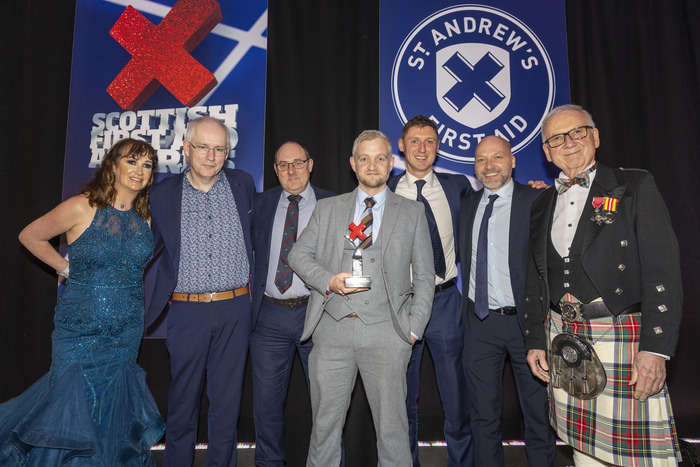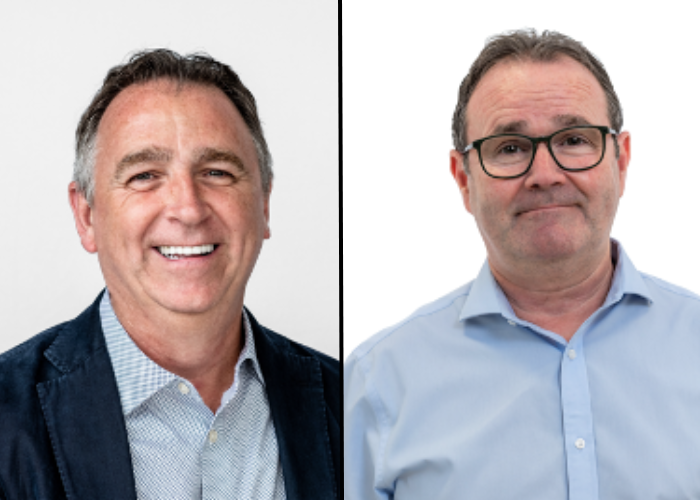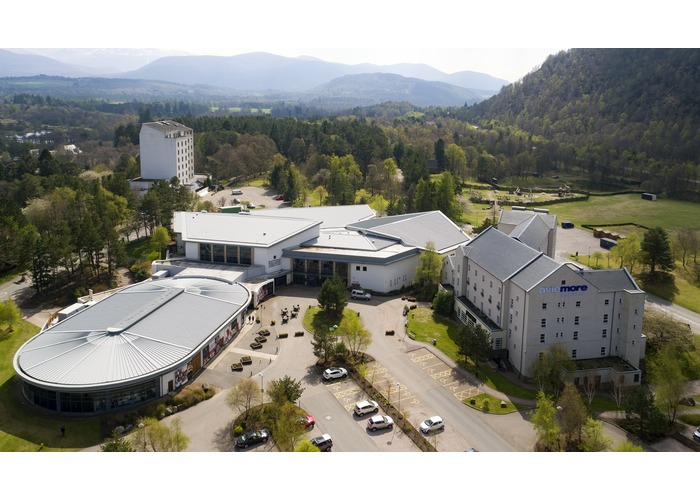Scotland’s new low carbon dream team – 14 cutting-edge Scottish start-ups hoping to make their millions from climate innovations have moved into the Edinburgh Centre for Carbon Innovation (ECCI).
They are the brains behind low carbon innovations ranging from a brand new alternative to plastic made from eggshells, to a smartphone app for charity shoppers and a shower curtain made from hemp.
The companies are part of the Climate-KIC Accelerator & Greenhouse schemes – high profile EU-funded support programmes for start-ups – which gives them funding and support to translate their inventions into business plans.
Climate-KIC was brought to Scotland for the first time ever by ECCI last year and in its first year helped 17 start-ups scoop 14 awards, more than £400,000 in investment and save the equivalent of more than 260,000 tonnes of carbon in a year.
The companies each got the chance to look around their new office, meet some of the experts who will be working with them and learn about the programme they will be embarking on.
ECCI, with an award-winning hub in Edinburgh and a new base in Hong Kong, brings together people from business, research, communities and governments to turn good low carbon ideas into reality. It supports a thriving community of low carbon enterprises and provides policy insight and evidence to help inform government decisions.
ECCI’s Head of Enterprise and Innovation Ed Craig said: “ECCI’s big ambition is to create a vibrant zero carbon future so it’s hugely exciting to welcome this latest batch of low carbon entrepreneurs with equally big ideas onto our successful accelerator programmes.
“Scotland has a world-leading approach to tackling climate change, and we’re looking forward to being able to offer our home-grown climate innovators the money and expertise to take on growing global markets.”
Martina Zupan, Founder and CEO of Alterwaste said: “Getting into the Climate-KIC Accelerator programme is a big step forward for our business. Professional support and additional finance available inside the low-carbon community will help us develop our business further and speed up our growth to reach our goal of reducing carbon footprint sooner.”
Kasey Hou, Founder of Kasey Hou said: “Running a start-up business is like putting puzzles together, because it requires bits and pieces of different expertise. With supports and resources from the Climate-KIC Accelerator, I am confident that I will be able to put every piece of puzzle together and have a successful business launch.”
The companies are:
Climate-KIC Accelerator Stage 1
ApparelXchange C.I.C. – Izzie Eriksen
ApparelXchange aims to combat textile waste by reinventing the way we buy and use school uniforms. Kicking off in Edinburgh but with aspirations of going nationwide, the scheme will connect schools, local authorities, parents and manufacturers to encourage reuse and recycling and help families who are struggling to make ends meet.
Alterwaste Ltd – Martina Zupan
Alterwaste have developed an alternative to plastic with a brand new, fully compostable material made from waste eggshells. The ‘Collegtion’ product line has the potential to cut plastic use and pollution by making use of the thousands of tonnes of eggshells that go to landfill every year. The benefits could be felt in industries such as cosmetics, packaging, foodservice disposables and construction. alterwaste.com
Bespoke Fabrics – Joan Johnston
Founder of Bespoke Fabrics Joan Johnson is developing a range of bedding products that will combine the company’sexpertise in good design, luxury, the circular economy and longevity.www.bespokefabrics.co.uk
One Cherry – Anton Puzorjov
One Cherry is a smart phone app that lets shoppers browse items from local charity shops from the comfort of their home, or on the move. By making charity shopping more convenient and accessible to customers, One Cherry hopes to increase sales and help support the work done by the charities. onecherryapp.com
Kasey Hou
Kasey Hou aims to reduce electronic waste by creating products that are designed for repair, thus extending the lifespan of gadgets and avoiding reliance on unreliable recycling options. Mainly targeted at eco-conscious consumers and DIY enthusiasts, the company’s first product will be a flatpack toaster.
SCORRES – Michael Shaw
SCORRES is an affordable smart irrigation product that provides ‘right-time, right-volume’ irrigation to crops. Aimed at farmers in water stressed India, SCORRES will apply modern communication technology such as smart phones to help change wasteful practices like leaving water pumps on all day. The agriculture sector accounts for 85% of all water use in India – a country where 60% of the country is subject to extreme water stress.
Wee Wash – Pierre Guglielmi
WeeWash is a tiny portable dishwasher specifically designed for small households, saving water and energy. By enabling singles to move away from resource intensive hand washing WeeWash aims to reduce water and energy demands on a large scale. weewash.co
uFraction8 – Monika Tomecka
uFraction8 technology address challenges in the bio-manufacturing industry by using microfluidics – the science of manipulating and controlling fluids – at scale as a liquid-particle processing technology.uFraction8 technology offers an alternative to industrial centrifuges that is more energy efficient and sustainable and increases productivity.COO MonikaTomecka is a Falkirk-based biologist who has identified a need for improving the current ways of bio-producing and is already developing a market with algae producers.
Generation Home – Dr Shemaiah Weekes and Dr Michael Page
Generation Home aim to disrupt what they see as an outdated approach to home provision by developing low-impact, energy-neutral, low-cost micro-homes and flexible modular homes. The start-up aims to employ a mix of renewable energy technologies to keep energy use low and take advantage of new materials, techniques and lifestyle trends.
My Bonnie Coo – Heather Walker and Neil Lazenby
My Bonnie Coo are creating a low carbon, highly decorative, cruelty free, three dimensional, self-assembly wall art ‘trophy’ in the shape of the head of a Highland cow (coo). The coo will be made using sustainable, locally sourced, plant-based materials (hemp) and will be manufactured in Scotland. The duo aim to become the iconic eco-friendly souvenir and take-home gift business for visitors to Scotland and the must-have home accessory for Scots at home and abroad.
Project Munro – Heather Urquhart and Alan Whiteside
Project Munro is an eco-tourism rewards platform that will promote sustainable lifestyle choices and business practices. The platform assesses how to encourage more Scots to holiday in Scotland, to use green transport options and to purchase locally. The team are also exploring how the rewards concept might be applied on a smaller scale to a local community network.
CO2 Catalyser – Gunel Aghabayli
CO2 Catalyser is developing a process for turning CO2 into alternative fuels, plant foods and acids. The unique electrochemical system is cheaper, more efficient and kinder on the environment than existing methods which will increase the potential for carbon capture and conversion in petrochemical and other heavy industries and unlike other methods, turns the CO2 into non-carbon emitting organic compounds.
Senspace – Jacqueline Bruce
Senspace is developing a product that will make use of hemp as an alternative to plastic shower curtains. Using sustainable components and hemp fabric that is biodegradable and/or recyclable, the natural blinds are fitted to the ceiling or retrofitted to suitable existing shower rods. The waterproof, durable and sustainable fabric will wind down from the top, to provide protection for bathrooms whilst showering. An incentivised returns service will be put in place to reutilise or recycle components/fabric as appropriate.
Beech product solutions – John Sloan
Beech product solutions’ mission is to offer food retail customers a suitable cost-effective alternative to plastic packaging using a biodegradable material made from food waste. The material PLA (polylactic acid) is traditionally made from renewable energy sources such as corn starch or sugarcane but the new company aims to use food waste from the agricultural sector or directly from food retailers to develop pellets that can be used in manufacturing.




